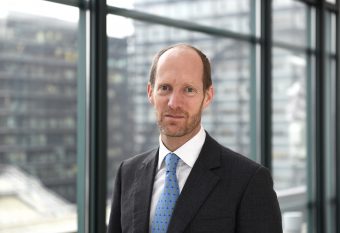
The Platform to Support Energy Transition in the Coal Regions of the Western Balkans and Ukraine was launched by the European Bank for Reconstruction and Development (EBRD), the World Bank, the European College, the Energy Community Secretariat, the European Commission and the Polish government. At the first meeting of the Platform, it was agreed that they would join efforts to enable the transition from coal to a low-carbon and climate-resistant future in the Western Balkans and Ukraine.
The Platform initiative was launched in September 2019, after the Western Balkans’ countries committed to increasing the share of clean energy in the Joint Declaration from Podgorica adopted in February 2019. In November 2017, Ukraine expressed a similar wish through its Strategy for the Development of Low Emissions until 2050. The EBRD’s Green Economy Transition (GET) Strategy 2021-2025 aims to increase the Bank’s green funding to more than half of its annual business by 2020 while striving to help the countries in which it operates building low-carbon economies.
In line with the Paris Agreement and the GET approach, the EBRD’s Fair Transition Initiative, launched this year, with the idea of ensuring that the benefits of the transition to a green economy are available to all while protecting vulnerable countries, regions and people. It is based on the EBRD’s expertise on investing in a green economy focusing on economic inclusion.
In focus:
The reason for the conversation with Harry Boyd-Carpenter, Director and Head of Energy of the Sustainable Infrastructure Group (EMEA) at the EBRD was the abovementioned, the first meeting of the Platform where many questions were raised, but also many answers that give us hope major changes in the coming years in the Western Balkans.
EP How will the EBRD, the World Bank, the Secretariat of the European Community, and the European Commission support the Western Balkans and Ukraine’s energy transition?
Harry Boyd-Carpenter Together we have launched a Platform that should help develop strategies and projects to initiate a timely transition in regions currently heavily dependent on coal. Participants in this Platform will work together to provide knowledge on transition planning and preparation. The Platform will also make it easier to find financial funds for projects and help identify and implement pilot projects that support these regions’ decarbonization goals. The EBRD will coordinate funding, including securing its funding, as needed, for transition projects and programs. The initiative is based on the concepts of inclusion, stakeholder engagement and equitable transition. It seeks to encourage broad consultation and dialogue between groups from the state, regional and local authorities, the coal industry, civil society, trade unions and social partners, and academic institutions.
EP What does the transition process look like and which countries should we look up to?
Harry Boyd-Carpenter From our experience, we have identified several key lessons to support countries transitioning from coal to cleaner fuels. Activities that precede any shutdown of the coal industry must be strategically planned with all stakeholder’s engagement and dialogue. Local engagement in activities and projects should be promoted in cooperation with the state level of government and the private sector. Efficient public institutions with strong capacities are key to the successful implementation of the transition, then new economic opportunities and opportunities that are likely to come from the developing sector, including but not limited to those related to the green economy, and new jobs in tourism and agriculture. It is also necessary to implement programs for retraining workers and to strengthen new skills to be able to find new jobs, while taking care to ensure equal opportunities for all, including women and vulnerable groups. Finally, investments that contribute to building sustainable physical and digital infrastructure are important for fostering economic opportunities.
Interview by: Jovana Canic
Read the whole interview in the new issue of the Energy portal Magazine SMART CITIES, december 2020 – february 2021.



